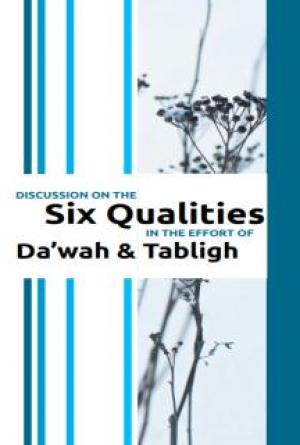
By Spencer Coffman
SpencerCoffman.com
ALSO BY SPENCER COFFMAN
A Guide To Deception
Relax And Unwind
Work Less Live More
A Healthier You!
Affiliate Marketing Expert
More Facebook Everything
365 Days Of Devotion For Everyone
YouTube Takeover
The End Times Prophecy
While every precaution has been taken in the preparation of this book, the author and/or publisher assumes no responsibility for errors or omissions, or for damages resulting from the use of the information contained herein.
Two Sets Of Ten: A Closer Look At The Ten Commandments
First edition. September 2017.
ISBN: 978-1-3706173-0-2 (Digital)
Copyright © 2017 by Spencer Coffman.
Cover Design by Spencer Coffman
All Rights Reserved.
Written by Spencer Coffman.
SpencerCoffman.com
INTRODUCTION
The Ten Commandments have been widely memorized and publicized throughout the world. In fact, they are arguably the most known about list of laws in the world. However, simply because they are known about doesn’t mean they are known. In addition, the list of Ten Commandments that is known was never specifically called the Ten Commandments, yet now, that is exactly what it is called. In addition, there is another set of commandments that bears that name. In fact, it is specifically called The Ten Commandments.
This study has been divided up into 14 short lessons that you can read and then discuss with a group of people. The lessons are designed to be quick and simple. In addition, I encourage you to take the time to reflect on the content and get into the verses mentioned. Really dig deep and examine the scriptures.
Make the effort to educate yourself and discuss this information with those around you. You will gain much more knowledge by reading the lessons and the accompanying verses than if you only read the lessons. If you want to engage in any online discussion, join my Facebook group and my Page called
ICHTHYS.
How quickly you move through this devotional is up to you. You can choose to complete one lesson each day and have it done in two weeks or you can use it as an excellent group study topic and complete one lesson each time you meet, which will stretch the course of the study over weeks or months. It is entirely up to you. As long as you take the time to truly understand what is going on then this study will be a success.
Lesson 1
THE TEN COMMANDMENTS
Do you know the Ten Commandments? Can you name half of them? If so, which commandments can you name out of which set of commandments? Wait, you didn’t know there was more than one set of Ten Commandments? Do you consider yourself to be a good person? Hopefully, you do. But consider this: have you ever lied, stolen, looked at someone lustfully, taken the Lord’s name in vain? If so, then you have failed to follow some of the Ten Commandments of God. And that isn’t even half of them! Today you will begin a two-week mini-study on the Ten Commandments. There are two sets, which are commonly known as the Moralistic Ten and the Ritualistic Ten. Which one do you know?
Which one is more commonly known? Are they even called the Ten Commandments? What was written on the stone tablets? Over the next two weeks, all these questions will be answered. In addition, you will learn about each of the well-known commandments and what they really mean. You will understand them and realize that following them is extremely difficult. Yet you must strive to do so. You need to be a good example for others.
Lesson 2
TWO SETS OF TEN
Eighty percent of Americans claim to believe in the Ten Commandments, yet the vast majority cannot even name four of them. Are you one of the vast majority? If so, make an effort to change. But which set of Ten Commandments are you to remember? After all, Moses journeyed up Mount Sinai three separate times to get these commandments. In Exodus 20, on his first journey up the mountain, Moses receives a spoken list of commandments, which is the most widely known. However, the Bible doesn’t specifically refer to these as the Ten Commandments. Later, Moses makes another trip up the mountain, and God promises to give stone tablets with commandments on them so that there may be something written down (Exodus 24:12). Moses leaves the mountain with the tablets (Exodus 32:15) and breaks them when he sees his people are worshiping a calf (Exodus 32:19). Finally, Moses goes up the mountain a third time after being told to chisel out stone tablets like those he broke (Exodus 34:1). He then receives a list of commandments identical to those on the first set of tablets. God then calls them the Ten Commandments (Exodus 34:28). This is the only time that that term is used.
Lesson 3
THE MORALISTIC TEN
The Moralistic Ten Commandments are the most widely-known-about commandments in the Bible. They are known about, not known, as most people cannot even name four of them. This list of commandments is specified in Exodus 20 and is a spoken list of commandments from God to Moses. These commandments were not written on stone. They were only spoken. In addition, they were never directly specified as the Ten Commandments. It is only Bible editors who have added that heading in the text. These are the commandments that are written all across America. They are the lists that are in government buildings, courthouses, and public places. This is the most widely distributed list of commandments on the market. The commandments are briefly as follows: No other gods, No idols, Don’t misuse the name of God, Remember the Sabbath day, Honor your father and mother, Don’t murder, Don’t commit adultery, Don’t steal, Don’t lie, and Don’t covet other people’s possessions. Make an effort to remember this list. They are very important and pretty much sum up the entirety of the 613 commandments in the Bible. Study them, know them, and practice following them.
Lesson 4
THE RITUALISTIC TEN
The Ritualistic Ten is the set of Ten Commandments that are referred to as such.
Moses was there with the LORD forty days and forty nights without eating
bread or drinking water. And he wrote on the tablets the words of the
covenant—the Ten Commandments (Exodus 34:28). This set of commandments was inscribed on the first tablets of stone and given to Moses by God. Then Moses chiseled out the second set of tablets, and God rewrote the commandments on them. The LORD said to Moses, “Chisel out two stone
tablets like the first ones, and I will write on them the words that were on the
first tablets, which you broke” (Exodus 34:1). The words on these tablets are briefly as follows: Do not worship any other god, No treaties with new lands, No idols, Celebrate the Feast of Unleavened Bread, First offspring of every womb belongs to God, Honor the Sabbath, Celebrate the Feast of Weeks, No yeast in blood sacrifices, Bring the best firstfruits to God, and Do not cook a goat in its mother’s milk (Exodus 34:14-26). These are the commandments that were written on the stone tablets. They are the only commandments in the Bible specifically called the Ten Commandments.
Lesson 5
NO OTHER GOD
You shall have no other gods before me (Exodus 20:3). This means that you must not consider anything as a god other than your Lord Jesus Christ. This can be a tricky area and a very hard commandment to follow. You must show God your complete and undivided attention. You must be entirely devoted to Him.
For example, if you are dedicated to working really hard for the purpose of earning money. Your goal is to build wealth, and you are so focused on money that nothing else really seems to matter. It’s all about the money, and you hate to spend it. You want to save as much as you can for yourself. If you have done this, with money or anything, then you have made money, or that thing, a god.
You have removed your full attention from God and placed it upon that earthly thing. Whether it is money, work, a hobby, your spouse, kids, et cetera.
Anything that takes up more of your time and energy than God is something that you have placed before God. You have given that thing a higher priority than God. You have broken the first commandment. Be careful to place God first.
Lesson 6
NO IDOLS
You shall not make for yourself an idol in the form of anything in heaven above
or on the earth beneath or in the waters below (Exodus 20:4). This commandment is longer than the rest and has very detailed instructions on what you must not do. In addition, it is one of two commandments to provide a reason you are to follow it. The reason is that God is a jealous god (Exodus 20:5). God warns you that if you make an idol, He will punish your children for your sins to the third and fourth generation. That means if you worship anything other than God, not only your children will suffer, but also your grandchildren and great-grandchildren. However, consider this. If you show love to God and only worship Him, then He will show His love for your family down to a thousand generations (Exodus 20:6). Idols can be tricky, because even if you don’t specifically make one, you may have created one in your mind.
You may hold something dearer than God. You may have a possession or treasure that you can’t fathom living without. Your prized possession. Be careful that this earthly object doesn’t become more important than God.
Lesson 7
DON’T MISUSE GOD’S NAME
You shall not misuse the name of the LORD your God, for the LORD will not hold
anyone guiltless who misuses His name (Exodus 20:7). Unfortunately, in today’s society, misusing the name of God has become a national pastime. It is something that is in the majority of every social media post and is in virtually every movie and TV show. This is a sin that has been mainstreamed and committed so often that Christians are becoming desensitized to it. They are even committing it without thinking it is a sin. This is a commandment, and breaking this commandment is serious business. Therefore, when you see OMG
in a post, don’t support it. Don’t like it. You don’t have to share it. In addition, try to be more conscious of yourself and your family. Don’t say God, Jesus, or Christ unless you are specifically talking about them. If you do so, you have turned the name of God into a curse word. You have taken a divine name, the name of your Heavenly Father, your creator, and thrown it in the gutter. Talk about disrespect. Make an effort to really be who you claim to be. Be a Christian and follow this commandment.
Lesson 8
REMEMBER THE SABBATH
Remember the Sabbath day by keeping it holy (Exodus 20:8). This is the second of the two commandments that provides a reason why you are to follow it. In addition, there is a long and detailed description following the command. You are to work for six days and make sure you get everything done that you need because the seventh day belongs to the Lord (Exodus 20:9-10). You are to do nothing on that day. No work at all. On it you shall not do any work, neither you,
nor your son or daughter, nor your male or female servant, nor your animals,
nor any foreigner residing in your towns (Exodus 20:10b). There is a very good reason why you are to follow this commandment. The reason is twofold. The first part is because God made all the heavens and earth in six days and then rested on the seventh day. God blessed that day and made it holy (Exodus 20:11). The second part of the reason can be derived and extrapolated from the text and the basis by which God wants you to live. God wants you to be like Him. Therefore, since He rested the seventh day, you should rest also.
Lesson 9
HONOR YOUR PARENTS
Honor your father and your mother, so that you may live long in the land the
LORD your God is giving you (Exodus 20:12). This is the only one of the Ten Commandments that comes with a promise. God tells you that if you honor your father and mother, you will live a long life in the land that God has provided for you. Your father and mother are your parents. Your only biological parents. They brought you into this world along with the help of God, and without them, you would not be here today. Therefore, you should honor and respect them. After all, everything that you are, you owe to them. Whether they raised you or not, they assisted in your creation, so learn to respect that.
No matter how you were brought up, everything that you are, your personality, mentality, mindset, passion, et cetera—all comes from your parents. If they were bad parents, you have a certain mindset because of that. If they were absent, your frame of mind reflects that. If they were great parents, they shaped your lifestyle. No matter how they were, you are the way you are because of them. Honor and respect them for making you that way.
Lesson 10
SHALL NOT MURDER
You shall not murder (Exodus 20:13). This is a pretty straightforward commandment. It is very simple and easy to understand and, for most people, it is easy to follow. You cannot murder anyone. Okay, no problem. But what is murder? There is a difference between murdering and killing. God is okay with killing when it is absolutely necessary. Killing is when a life is taken in war with a just cause. Or it is when a life is taken in self-defense, whether you are defending yourself or another person. Murder is when a life is taken for immoral reasons. They are usually self-centered and selfish reasons. The tricky part is that murder can be completed in your mind. So even though you may not be physically taking someone’s life, you could still be murdering him or her in your mind. For example, if you become angry, or frustrated, with someone and wish him or her dead, that is murder. You are committing murder in your heart. If you don’t like someone and wonder, or hope, that somebody will kill them, that is also a sin. Anytime you are wishing ill upon someone resulting in death, you are murdering him or her in your heart.
Lesson 11
SHALL NOT COMMIT ADULTERY
You shall not commit adultery (Exodus 20:14). If you know what adultery means, then this commandment is self-explanatory. Basically, adultery means sleeping with another person’s spouse. At the time when these commandments were given to the Israelites, this was mainly directed toward men, as women did not have all the rights they have today. However, nowadays, with women being as independent as they are, it is directed at them as well. Don’t sleep with another person’s spouse. That is it. It’s very simple. But Jesus made it harder. He said you not only must not sleep with them, you must not even think about it. But I
tell you that anyone who looks at a woman lustfully has already committed
adultery with her in his heart (Matthew 5:28). Again, due to the time of writing, this was directed toward men. But it applies to women all the same. If you look at someone and think about having sexual relations with him or her, then you are committing adultery. Therefore, be very careful how far you let the attraction play out in your mind. Keep your thoughts pure. After all, it is your thoughts that can lead to action (James 1:15).
Lesson 12
SHALL NOT STEAL
You shall not steal (Exodus 20:15). Stealing means taking something that doesn’t belong to you without receiving permission to take that thing. When you steal, you are taking what’s not yours to have. This action can be done actively and passively. There are many different ways in which you can steal something from someone, many of which you don’t even regard as stealing.
For instance, when you fail to tithe, you are stealing from God (Malachi 3:8-9).
Therefore, if you aren’t tithing, you are breaking this commandment. Another way you might be stealing without knowing it is when you rob someone of his or her time. If you are late to an appointment or meeting, then you have robbed that person of the time you committed to them. Thus, you kept that person waiting and robbed them of time they could have used elsewhere. In the same way, if you show up too early to a meeting, then you are robbing that person of time they would have had before they were meeting you. If you stay up too late and keep someone awake, you are robbing them of their sleep. You must be very careful, and always consider other people before yourself.
Lesson 13
SHALL NOT LIE
You shall not give false testimony against your neighbor (Exodus 20:16). False testimony simply means lying. You are not to testify to something that isn’t true. That means, at all times, you must speak the truth. However, you must do so in a kind and gentle manner. Avoid being blunt and insensitive. If you are telling the truth and hurting other people’s feelings, then you are still committing a sin. The Bible says not to testify falsely against someone. That means that you need to speak the truth. The concept is very black-and-white.
That is not to lie when it will harm other people. You must always tell the truth and allow God to control the outcome. You live in a world where lying seems okay. Everyone lies and gives false advertising. Do not be a friend of the world, for a friend of the world is an enemy to God (James 4:4). You need to break free of the mentality that there are different degrees of lying. White lies, fibs, low-stake lies, et cetera. Lying is lying, and when you lie, you are breaking a commandment of God because, most of the time, lies will eventually end up hurting someone.
Lesson 14
SHALL NOT COVET
You shall not covet your neighbor’s house. You shall not covet your neighbor’s
wife, or his male or female servant, his ox or donkey, or anything that belongs
to your neighbor (Exodus 20:17). This is a very detailed commandment that is broad enough to cover everything and detailed enough to still be very specific.
You are not to covet, or desire, anything that your neighbor has. Who is your neighbor? Everyone and anyone you come into contact with is your neighbor. If you see someone on the street and they have a really nice car, you need to be careful not to want their car. It is okay to see a nice car and desire to have a car like that. But it is not okay to want their car. If you want something that somebody else owns, then you are engaging in coveting, which is a premonition of stealing. After all, thoughts and desires conceive and give birth to sin (James 1:15). Therefore, if something belongs to someone else, you cannot desire to have it for yourself. You can desire to have one like it, or to go and legitimately get one for yourself, but you cannot desire the one they have.
CONCLUSION
Now you have a pretty good idea of what the Bible says about the Ten Commandments. You have thoroughly examined each of the Moralistic Ten Commandments and will hopefully start to live by them. You will make an effort to change your life and be more like Jesus. In addition, you have learned about the Ritualistic Ten Commandments and that they are really called the Ten Commandments. You have been given a brief overview of what each of those commandments is and how they came about. Hopefully, you have taken the time to read the Bible and learn about them. Now I hope that you will take advantage of my other devotionals and continue to enhance your walk with Jesus Christ. If you would like to engage in any follow the Social Media
Ministries Facebook Page. I look forward to communicating with you.
ABOUT THE AUTHOR
My name is Spencer Coffman. I grew up going to Sunday school and church on a weekly basis. I went through the AWANA program from fourth to sixth grade.
AWANA stands for Approved Workmen Are Not Ashamed and is a program that helps kids memorize, and learn about, the Bible. During those years, I memorized over 750 Bible verses and earned the Timothy Award, which is the highest achievement in the elementary AWANA program. After that, I became a leader in AWANA and also participated in High School AWANA clubs. I memorized 750 more verses and earned not only the Meritorious Award but also the Citation. The highest AWANA award.
The church leaders quickly paid attention, and when I was fifteen years old, I was asked to lead an adult study. I did, and the class was a great success. There were twenty or so regular attendees, and together we discussed a variety of controversial topics throughout the Bible. At age sixteen, I enrolled in Alexandria Technical College and no longer led the Bible study. I then transferred to Minnesota State University Moorhead and conducted a psychological experiment about human behavior and the ability to read emotions. In 2013, one year after graduation, my thesis, Facial Expression: The
Ability to Distinguish between Enjoyment and Nonenjoyment Smiles, was published in the Psi Chi Journal of Psychological Research.
I continued to study facial expressions, and in 2015, I wrote and published A
Guide to Deception, which is a book that educates readers about deception and teaches them how to detect lies. Currently, I have been working on writing, and publishing, a number of eBooks in addition to publishing 365 Days of
Devotion For Everyone.
I’d love to have you visit my website and connect with me on social media.
Take a look at my other books and leave some Amazon reviews. Share them with your friends and on your social media accounts. It’s time the people of God start becoming the people of God. Rise up, and share the Word!

Here’s another book you may enjoy!









